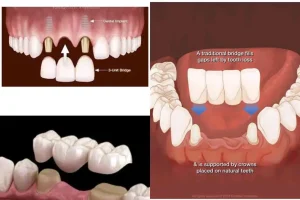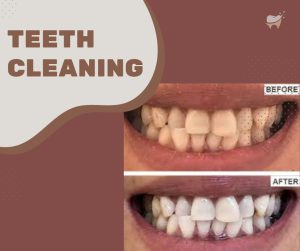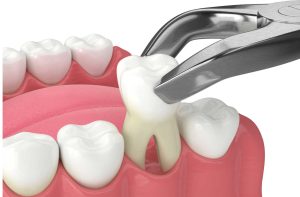Four Causes of Tooth Decay in Uganda
Cavities are permanently damaged areas in the hard surface of your teeth that develop into tiny openings or holes. Cavities, also called tooth decay or caries, are caused by a combination of factors, including bacteria in your mouth, frequent snacking, sipping sugary drinks and not cleaning your teeth well.
Cavities and tooth decay are among the world’s most common health problems. They’re especially common in children, teenagers and older adults. But anyone who has teeth can get cavities, including infants.
If cavities aren’t treated, they get larger and affect deeper layers of your teeth. They can lead to a severe toothache, infection and tooth loss. Regular dental visits and good brushing and flossing habits are your best protection against cavities and tooth decay.
Book an appointment with TM Dental Solution in Ntinda.
Symptoms of Tooth Decay in Uganda
The Symptoms of cavities differ based on their size and where they are located. In the initial stages of a cavity, there might be no noticeable symptoms. As the decay progresses, it can lead to manifestations such as:
- Toothache: Spontaneous pain or discomfort without an apparent cause.
- Tooth sensitivity
- Mild to intense pain while consuming sweet, hot, or cold substances
- Observable holes or depressions in the teeth
- Staining on any tooth surface, appearing as brown, black, or white
- Pain experienced during biting down
Causes of Tooth Decay in Uganda
In this in-depth exploration, we will delve into the four primary causes of tooth decay, providing comprehensive insights and emphasizing actionable preventative measures.
- Poor Oral Hygiene: The Gateway to Decay In Uganda, insufficient oral hygiene practices stand out as a leading cause of tooth decay. When brushing and flossing are neglected, plaque accumulates on teeth, giving rise to acids that erode enamel. It is imperative to encourage individuals to embrace a routine of brushing twice daily with fluoride toothpaste and incorporating dental floss into their daily regimen. Regular dental check-ups play a pivotal role in early detection and intervention.Additionally, fostering awareness about the importance of oral hygiene and the correlation between neglected dental care and decay is vital. Educational initiatives can empower individuals to take charge of their oral health, reinforcing the positive impact of consistent hygiene practices.
- Unhealthy Dietary Habits: The Sweet Saboteurs Unhealthy eating habits contribute significantly to the prevalence of tooth decay in Uganda. Sugary foods, especially those laden with refined sugars, create a favorable environment for harmful bacteria to thrive. The ensuing production of acids attacks tooth enamel, initiating decay. Promoting a balanced diet rich in fresh fruits, vegetables, and whole grains becomes pivotal in countering this cause. Additionally, raising awareness about the adverse effects of excessive sugar consumption and advocating for healthier alternatives, such as water over sugary drinks, is crucial in combatting this cause.Exploring the connection between diet and oral health, providing resources on nutritious alternatives, and encouraging community initiatives that promote healthier eating habits can further fortify the fight against tooth decay.
- Lack of Access to Oral Healthcare: Bridging the Divide Limited access to oral healthcare services, especially in rural areas, poses a significant challenge in preventing and treating tooth decay in Uganda. Many individuals lack regular dental check-ups, preventive treatments, and oral health education, perpetuating the cycle of decay. Addressing this requires concerted efforts to enhance accessibility and affordability through initiatives like mobile dental clinics and community-based oral health programs.Strengthening the infrastructure for oral healthcare, empowering local communities with knowledge about available services, and advocating for policies that prioritize oral health can create a more inclusive approach to combating tooth decay.
- Fluoride Deficiency: Strengthening Enamel Defense Fluoride, an essential mineral for preventing tooth decay, is deficient in certain areas of Uganda, elevating the risk of dental cavities. Addressing this deficiency entails implementing community water fluoridation programs and promoting the use of fluoride toothpaste and mouth rinses. Collaborative efforts between dental professionals, public health authorities, and community leaders are instrumental in ensuring effective fluoride supplementation.Engaging in research to identify fluoride-deficient areas, implementing targeted educational campaigns, and involving local communities in fluoride supplementation initiatives can further fortify the fight against tooth decay.
When to see a dentist
You may not be aware that a cavity is forming. That’s why it’s important to have regular dental checkups and cleanings, even when your mouth feels fine. However, if you experience a toothache or mouth pain, see your dentist as soon as possible.




